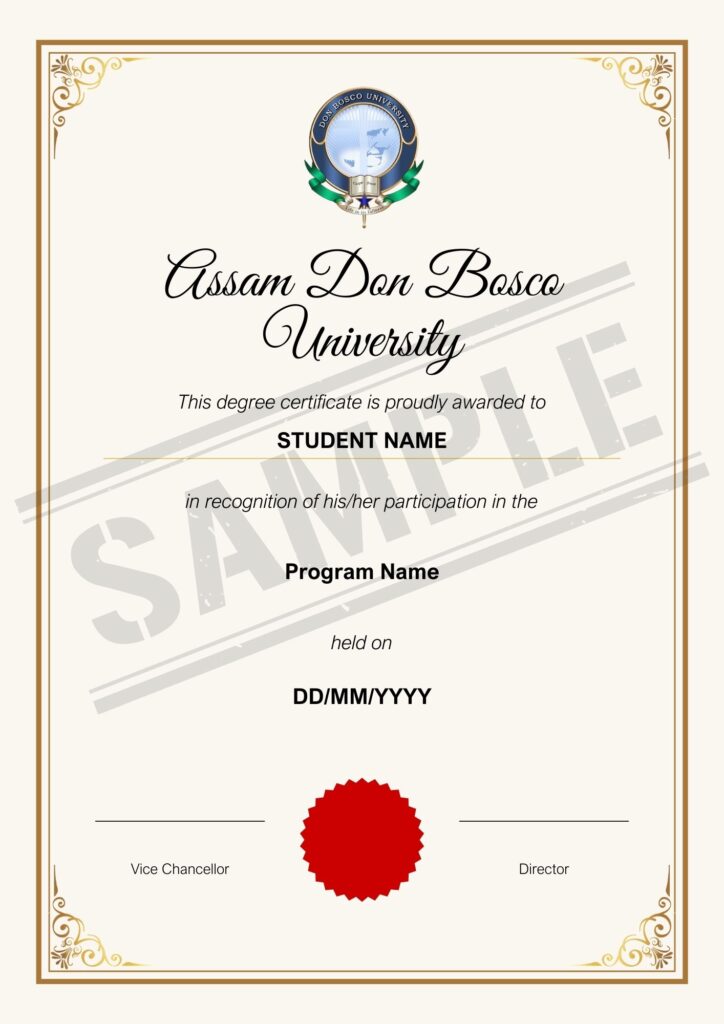Test Program
MA in Education
Duration: 02 Years
No of seats: 40
MA in Education
A Post Graduate Programme designed for those aspiring to be innovative roles in the world of Education. A master-ful blend of theory and practice, the programme will assist the candidates to obtain a Master’s Degree in Education while specialising in any one of the following areas of Education where there is demand for trained personnel:
- Educational Leadership – train yourselves for leadership roles in education by developing the skills needed for coping with the complex demands of current education policies and practices
- Educational Psychology – understand the psychology of the student and and develop testing and counselling skills in the context of education

Program Highlights and Advantages
Discover our Degree Programs and begin an exciting educational journey

Innovative Curriculum
Focused on modern pedagogy and education systems.

Expert Faculty
Learn from experienced academicians and researchers.

Research Opportunities
Engage in impactful research projects.

Holistic Development
Develop leadership and critical thinking skills.
Program Overview & Structure
| Philosophical Foundations of Education |
| Fundamentals of Educational Psychology |
| Emerging Trends in Education |
| History and Development of Education in India |
| Journaling – a Technique for Personal and Academic Growth |
| Elective Group I |
|---|
| Eastern Approaches to Psychology and Counselling |
| Educational Technology |
| Society and Social Problems |
| Elective Group II |
| Introduction to Journalism |
| Leadership and Social Responsibility |
| Introduction to Indian society, polity and economics |
| English Language Teaching |
| Sociological Foundations of Education |
| Research Methodology in Social Science |
| Theory of Knowledge |
| Educational Leadership Developing Educational Leadership Educational Psychology Human Development and Learning |
| Computer Applications in Social Sciences (Lab) |
|---|
| Educational Seminar I |
| School Visit |
| Elective Group II |
| Society and Social Problems |
| Peace Education and Conflict Management |
| Introduction to Social Psychology |
| North-East Indian English Literature |
| Curriculum Development and Instruction |
| Principles and Techniques of Teaching and Pedagogy |
| Teacher Education |
| Measurement and Evaluation in Education |
Educational Leadership
|
Educational Psychology
|
| Dissertation Phase I |
| Educational Seminar II |
| Teaching Practice |
| Organisational Communication |
Educational Leadership
|
Educational Psychology
|
| Dissertation Phase II |
| Internship |
Degree offered by us

Eligibility
Grade /Marks requirement from qualifying examinations
Graduation in any stream with 50% of the aggregate. Those with experience in the field of educational administration will be preferred.
Entrance Examinations / Personal Interview
Provisional Admission: Applicants who have not yet obtained their Bachelor’s Degree also may apply for admission. Such candidates would be offered provisional admission until they furnish evidence of fulfilling the eligibility criterion stated in (1) above within 3 months of the commencement of the programme.
Career Impact
How We Help You Build Your Dream Career
Educator Roles
Excel as a teacher or education specialist.
Leadership Opportunities
Take on roles as academic leaders and administrators.
Policy Influence
Contribute to shaping education policies.
Research Careers
Pursue advanced studies and innovative educational research.
F.A.Q.
The university offers a range of undergraduate, graduate, and doctoral programs across disciplines including engineering, science, arts, business, and health sciences. Each program has its own specific requirements and areas of focus.
You can apply online through our university’s admissions portal. Complete the application form, submit the required documents (such as transcripts, test scores, and recommendation letters), and pay the application fee. Detailed instructions are available on our admissions webpage.
Admission requirements vary by program. Typically, undergraduate programs require a high school diploma and specific academic credentials, while graduate programs may require a bachelor’s degree in a related field, relevant test scores, and work experience. Be sure to review the specific requirements for the program to which you are applying.
Yes, the university offers a variety of scholarships and financial aid programs based on academic merit, financial need, and other criteria. Information about available scholarships and how to apply is available on the university’s financial aid webpage.
Application deadlines vary depending on the program and the intake period (e.g., fall, spring). Be sure to check the program’s admissions page for specific deadlines.
